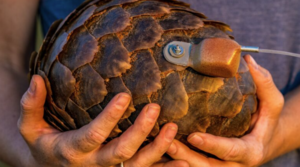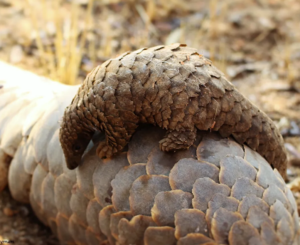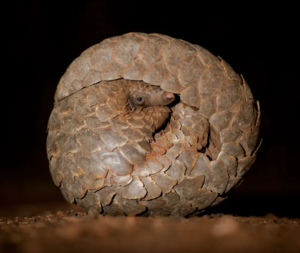Tracking the Elusive Pangolin
1/31/2024
 The pangolin is one of the rarest and most trafficked mammals on Earth. In Asia, its scales are sold at high prices for traditional medicinal purposes. In many parts of Africa, pangolin meat is considered a delicacy and is sold in local markets. Another threat to the pangolin is electrified fences used by farmers to protect their animals. A South African study estimated 1,000-2,000 pangolin deaths per year. The animals are under strict protection, but there are still places where they can be observed in the wild, such as the Okinjima Nature Reserve in Namibia.
The pangolin is one of the rarest and most trafficked mammals on Earth. In Asia, its scales are sold at high prices for traditional medicinal purposes. In many parts of Africa, pangolin meat is considered a delicacy and is sold in local markets. Another threat to the pangolin is electrified fences used by farmers to protect their animals. A South African study estimated 1,000-2,000 pangolin deaths per year. The animals are under strict protection, but there are still places where they can be observed in the wild, such as the Okinjima Nature Reserve in Namibia.
The oldest known relative s of today's pangolins lived about 47 million years ago. The ground pangolin is the only species of pangolin that occurs in Namibia. It is the second largest of all the pangolin, weighing between 18-40 pounds. In terms of appearance, the pangolin could have emerged from a prehistoric fairy tale. These primarily nocturnal insectivores are the last survivors of a millions-of-years-long evolutionary process. Their bodies are covered in hard and sharp scales made of keratin; their tongues are longer than their body length and are attached near the pelvis and the last pair of ribs.
s of today's pangolins lived about 47 million years ago. The ground pangolin is the only species of pangolin that occurs in Namibia. It is the second largest of all the pangolin, weighing between 18-40 pounds. In terms of appearance, the pangolin could have emerged from a prehistoric fairy tale. These primarily nocturnal insectivores are the last survivors of a millions-of-years-long evolutionary process. Their bodies are covered in hard and sharp scales made of keratin; their tongues are longer than their body length and are attached near the pelvis and the last pair of ribs.
Today, ther e are eight known species of pangolins, four in Africa and four in Asia. What they all have in common is that their populations have declined significantly due to illegal hunting. Pangolins can usually defend themselves well against most predators. For instance, when a lion or leopard gets too close to a pangolin, it rolls itself up into a protective impenetrable ball. However, this defense strategy is useless against humans and as long as pangolins have a commercial value, dead or alive, they will continue to be poached and trafficked. The Okonjima Nature Reserve, in partnership with the AfriCat Foundation, is providing a safe habitat for the pangolin in the Reserve while researchers collect vital information to support their conservation throughout Namibia, and beyond. Visits to the AfriCat Foundation can be arranged – please contact us for information.
e are eight known species of pangolins, four in Africa and four in Asia. What they all have in common is that their populations have declined significantly due to illegal hunting. Pangolins can usually defend themselves well against most predators. For instance, when a lion or leopard gets too close to a pangolin, it rolls itself up into a protective impenetrable ball. However, this defense strategy is useless against humans and as long as pangolins have a commercial value, dead or alive, they will continue to be poached and trafficked. The Okonjima Nature Reserve, in partnership with the AfriCat Foundation, is providing a safe habitat for the pangolin in the Reserve while researchers collect vital information to support their conservation throughout Namibia, and beyond. Visits to the AfriCat Foundation can be arranged – please contact us for information.
1/31/2024
HeroRATS to the Rescue
«
previous
1/31/2024
Kenya, Tanzania....or Both?
next »
 |
|  |
|  Share
Share
